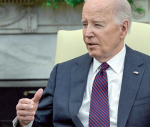You are here
UK public-spending plan has 50-50 chance of success — think tank
By Agencies - Nov 26,2015 - Last updated at Nov 26,2015

Britain's Chancellor of the Exchequer George Osborne (left) is shown how to lay a brick by bricklaying supervisor Michael Hull during a visit to a housing development in South Ockendon in Essex, Britain, on Thursday (Reuters photo)
LONDON — British Finance Minister George Osborne's latest spending plans have a roughly 50 per cent chance of success, the head of the country's non-partisan Institute for Fiscal Studies (IFS) think tank said on Thursday.
Osborne stuck to his commitment of turning a budget deficit into a surplus by 2020 in a mid-year budget update on Wednesday, confounding predictions that he might have to rein in his ambitions for putting public finances in the black.
But the IFS, which releases a closely watched analysis after each British budget statement, said Osborne had little room for manoeuvre if growth was weaker than expected, tax revenues fell short or spending proved intractable.
"He's going to need his luck to hold out. He has set himself a completely inflexible fiscal target — to have a surplus in 2019/20. This is not like the friendly, flexible fiscal target of the last parliament," IFS Director Paul Johnson said.
"If he is unlucky, and that's pretty much a 50/50 shot, he will either have to revisit the spending decisions, raise taxes, or abandon the target," he added.
Osborne has made a balanced budget the centrepiece of his time in office since 2010. But he is only half way through an austerity push he once planned to have completed by now.
"This is not the end of 'austerity'. This spending review is still one of the tightest in post-war history," Johnson elaborated.
The big feature of Osborne's budget update was abandoning plans to scrap tax credit payments to low earners before they are replaced by a new benefit, universal credit.
But the IFS said this would offer only temporary relief to Britain's poorest. Under the new benefit, spending on welfare for working-age Britons would fall to a 30-year low as a share of national income.
"The chancellor hasn't gone soft," IFS researcher Andrew Hood said. "In the long run, the system will be significantly less generous to low-income families, both in and out of work. That is the big headline, not the U-turn."
IFS figures showed that by 2020, 2.6 million working families would lose on average £1,600 ($2,420) in benefits a year and 1.2 million non-working households would lose 2,500 pounds. Several million other families would gain, but by less.
Labour Party finance spokesman, John McDonnell, said the IFS figures showed that Osborne's plans were unravelling.
"We said this was a smoke-and-mirror spending review and we were right," he told reporters.
A finance ministry spokesman said it was inappropriate to compare the benefits individuals received now with the universal credit, and that existing claimants could freeze their current cash entitlement rather than switch to universal credit.
Osborne said the government, which is borrowing £73.5 billion (105 billion euros, $110 billion) this year, is on track to balance its books by 2019-20.
This will be achieved through the most significant belt-tightening in a generation which includes reducing welfare by £12 billion and the budgets of some government departments by up to 37 per cent.
He dropped a plan to cut tax credits, a benefit payment for low-income working families, after the House of Lords voted last month against the move in a humiliating defeat for the government.
Opponents of the move, including many within his own centre-right Conservative Party as well as the main opposition Labour Party under Jeremy Corbyn, said it would have left over 3 million families worse off.
"I've listened to the concerns. I hear and understand them," Osborne told lawmakers. "Because I've been able to announce today an improvement in the public finances, the simplest thing to do is not to phase these changes in, but to avoid them altogether."
Osborne, finance minister since Cameron took office in 2010, said that the decision was affordable because of projections that tax revenues were set to increase.
Treasury sources indicated that the full £12 billion of planned welfare savings would still be carried out through reductions to other types of state benefits.
The 44-year-old, effectively Cameron's number two, also sprung a surprise by announcing that police funding would not be cut, defying a widespread expectation among senior officers and commentators.
"Now is not the time for further police cuts," Osborne told the Commons. "The police protect us and we're going to protect the police."
In England and Wales, the number of police has fallen nearly 12 per cent since 2010 and senior police figures had warned that a further reduction could hit their ability to prevent a major Paris-style attack in Britain.
Making the sums add up
Britain's official economic growth forecast was held at 2.4 per cent for 2015 but revised up to 2.4 per cent for 2016 from 2.3 per cent.
Debt was predicted to be 82.5 per cent of national income this year, down from 83.6 per cent at the time of Osborne's annual budget in July.
The finance minister also lowered his borrowing forecasts to £73.5 billion this year and to £49.9 billion next.
But some analysts questioned how Osborne's figures added up.
"In an upbeat statement to parliament, the UK's Chancellor of the Exchequer, George Osborne, suggests that UK growth will be stronger than previously thought, government borrowing will be lower and austerity will be relaxed," ING economist James Knightley said.
"Many will question how a £27 billion improvement in the government's fiscal position has been generated from such a marginal increase in the growth forecast, modest changes to the interest rate outlook and the introduction of higher stamp duty on second homes," he added.
McDonnell, a key ally of left-winger Corbyn, accused Osborne of taking too long to eliminate the deficit.
"The reality is this: after five years, the deficit has not been eliminated and this year it is expected to be over £70 billion," he said.
Osborne sweetened the cuts by announcing an affordable house building programme amid complaints that demand has priced many properties out the reach of all but the wealthiest, particularly in southeast England.
The government will build 400,000 affordable homes in the "biggest house building by any government since 1970s", with extra support for London, Osborne added.
He also announced a higher rate of tax on people buying second homes and buy-to-let properties.
Related Articles
British Finance Minister George Osborne spelled out plans for more spending cuts on Monday, betting that voters will accept his tough approach to fixing the economy and give an election victory to his Conservative Party next year.
British Finance Minister George Osborne offered a sweetener to pensioners on Sunday, less than two months before a national election, but promised there would be no big giveaways for voters when he sets out his final pre-vote budget.
LONDON — Finance Minister George Osborne said last week that Britain's economy was not immune from a "dangerous cocktail" of threats from ab















